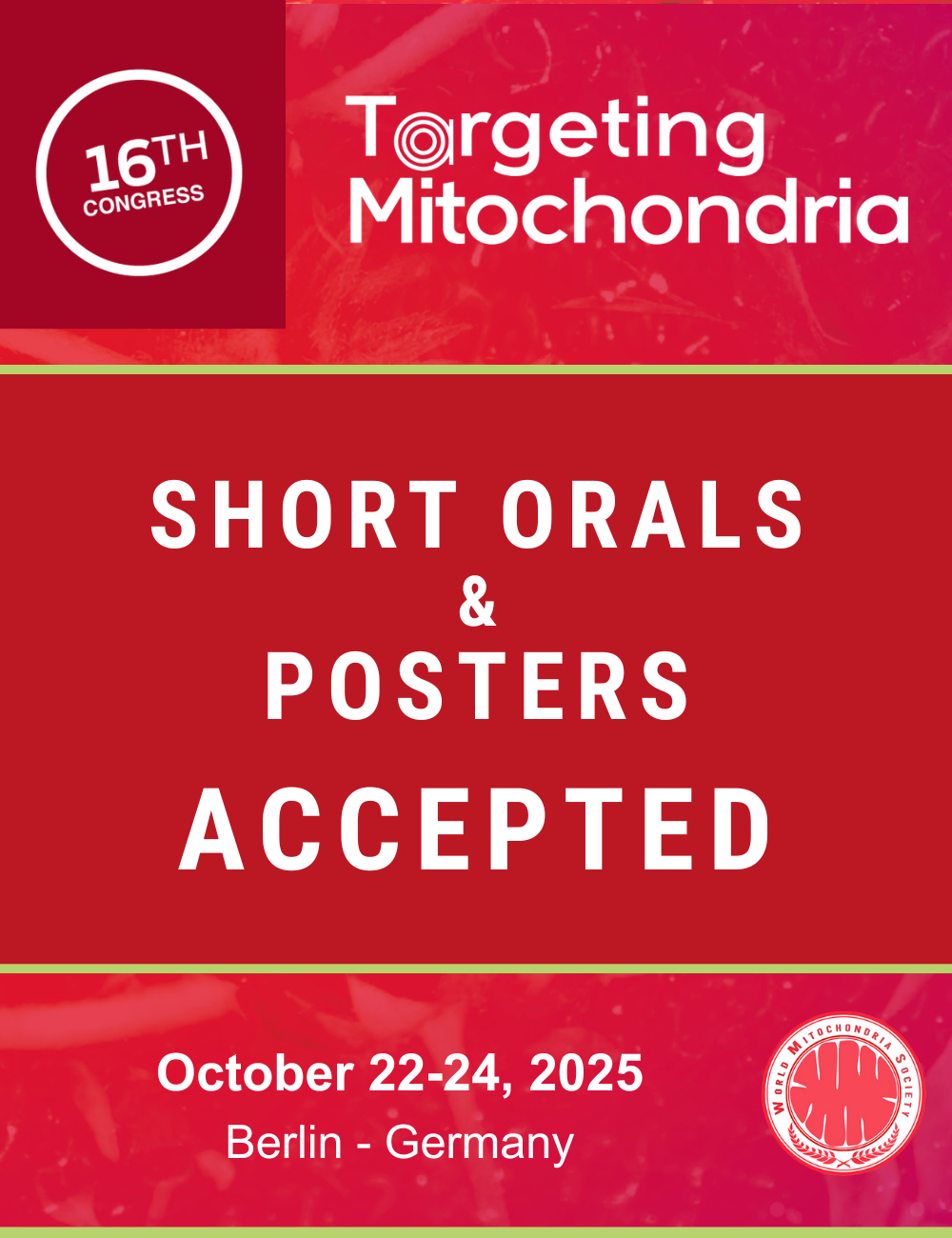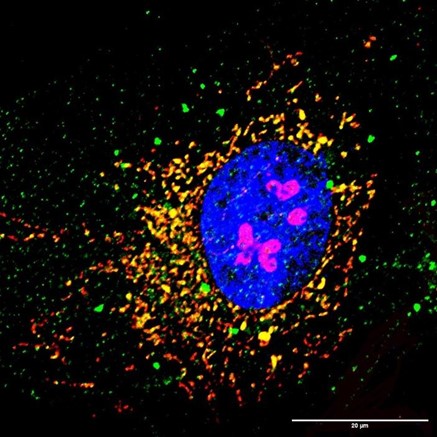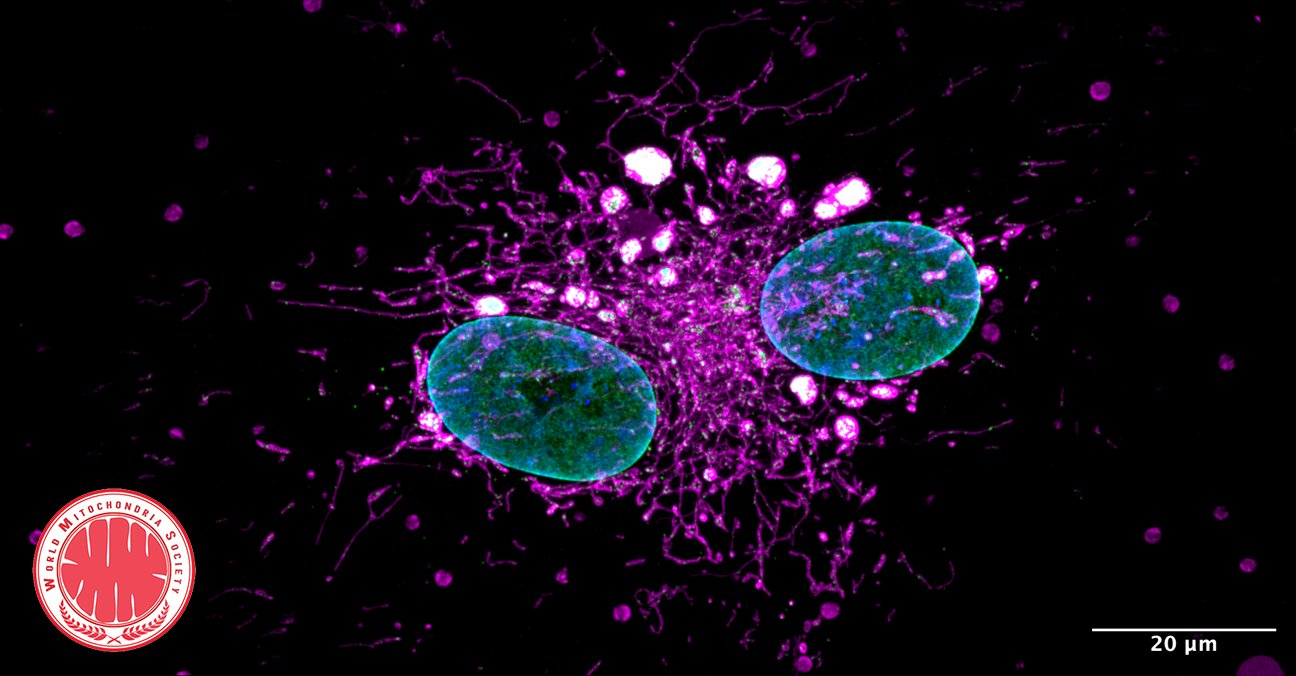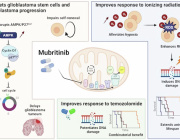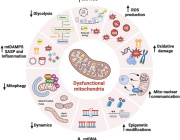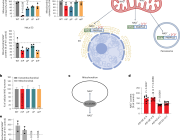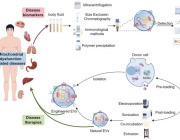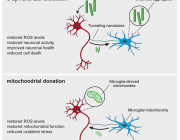Who will attend Targeting Mitochondria World Congress 2015 from Industries & Academics?
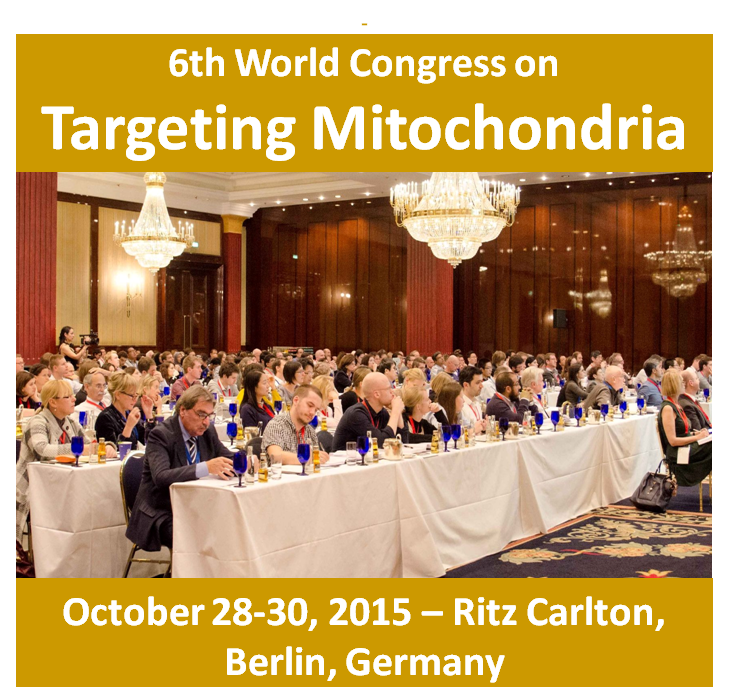
The sixth edtition of the World Congress on Targeting Mitochondria will gather academics and industrial leaders in the field of mitochondria research during three days (October 28 to 30) at Ritz Carlton, Berlin.
Among the industrial participants:
Neurovive, Seahorse, Photonics Healthcare, Mitologics, Glaxosmithkline, Unifarco, Bayer Pharma, Poxel, Dainippon Sumitomo Pharma, Novartis Institute for Biomedical Research, Thermo Fisher Scientific, Novartis Institutes for Biomedical Research, Selcia, Sanofi, Daiichi Sankyo, Biomedical Centre Speyer, Astellas Pharma Europe, Pierre Fabre Dermo-Cosmetique...
Among the academic participants:
Harbin Medical University, Universidad Nacional Autonoma De Mexico, Institute of Biotechnology, Université de Sherbrooke, Columbia University, Instituto de Bioquimica Vegetal y Fotosintesis, Universitätsmedizin Greifswald, University of Veterinary Medicine Vienna, Centre Hospitalier de Luxembourg, Neurologische Universitätsklinik Der Otto-Von-Guericke Universität Magdeburg, University of Pecs, Karolinska Institutet, Leibniz Institut für Neurobiologie, Helmholtz Zentrum München, Moscow Clinical and Research Institute of Pediatrics, University of Aberdeen, L. Boltzmann Institute for Experimental and Clinical Traumatology, CSIR Institute of Genomics and Integrative Biology, University of Tennessee Health Science Center, Ernst Moritz Arndt University of Greifswald,CNRS, Mcgill University, National Inst of Health, University of Leipzig,Universidad Nacional Autónoma de México Unam, Telethon Kids Institute, LCSB, Georgia Regents University, University of Southern California, University of Southampton, University Hospital Essen, Children Hospital Bambino Gesù, Ukh Neurologie, Kings College London, Institute of Liver Studies, Universidad Nacional De Colombia, University of Buenos Aires, Universität Leipzig, Max Planck Institute of Molecular Cell Biology and Genetics, University Leipzig, Aarhus University, Departement of Intensive Care Medicine, Johns Hopkins University, University of Oxford, University of Edinburgh, Chuv-Unil, Department of Pharmaceutical Sciences, College of Pharmacy-Glendale, Midwestern University, University of Warwick, Ulm University, University of Missouri - Kansas City, Beijing Institute for Drug Control, University of Zurich, Fundacion Ramon Dominguez,Polytechnic University of Marche, Max Planck Institute of Colloids and Interfaces, University of Manchester, University of Calgary, Albstadt-Sigmaringen University, Albstadt-Sigmaringen University of Applied Sciences, The University of Liverpool, King's College London, Samsung Medical Centre Ssk University, Weill Medical College of Cornell University, SRUC, Federal State Budgetary Institution "Scientific Centre of Children Health", Friedrich-Alexander University Erlangen-Nürnberg, University Hospital Erlangen, University of Aberdeen, University of Veterinary Medicine, Vienna, INSERM, Fondazione Cuoa, Max Planck Institute of Psychiatry, Midwestern University, University of Edinburgh, Psychiatric Practice, First Faculty of Medicine, Charles University and General University Hospital In Prague, University of Melbourne, Cellex-Idibaps, Mossakowski Medical Research Centre, Pas, University of Toronto, Sapir College, Department of Pathophysiology, Beijing Neurosurgical Institute, Capital Medical University, Beijing Neurosurgical Institute, University College London, Institute of Theoretical and Experimental Biophysics, Russian Academy of Sciences, Pushchino, Russia, Stockholm University, Tokai University, University of Veterinary Medicine, Laboratory of Food and Regulation Biology, Graduate School of Agriculture, Tokai University, Technion-Israel Institute of Technology, Netherlands Institute for Neuroscience, University of Bath, Institute of Neurology/ University Medical Center Ulm, Ludwig Boltzmann Institute for Experimental and Clinical Traumatology, New York University, University Hospital North Norway, University of Helsinki, Wayne State University, University of Warsaw, University of Freiburg, Colorado Mesa University, Ilia State University, Sifa University, Université Perpignan, Universidad De Valencia, Mediterranean Institute for Life Sciences, Martin-Luther University Halle-Wittenberg, The George Washington University School of Medicine, Institute of General Pathology and Pathophysiology...
If you would like to register, please follow this link.
For more information about Targeting Mitochondria World Congress 2015: www.targeting-mitochondria.com
Berlin will host the largest conference dedicated to Mitochondria
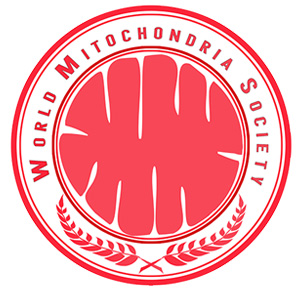
6th WMS Congress on Targeting Mitochondria
WMS Workshop on How to Evaluate Mitochondria Function & Dysfunction?
October 28-29-30, 2015 - Hotel Ritz Carlton, Berlin
The WMS scientific committee announced the publication of the final agenda and the list of abstracts accepted for oral and poster presentation.
To access to the program, please follow this link.
Who is attending the sixth WMS congress?
Berlin will host an elite group of academic and industrial experts from leading life sciences, pharmaceutical, cosmetics and biomarkers evaluation companies seeking to exchange knowledge and share ideas ranging from basic science to latest discoveries and innovations around of mitochondria.
To access to the list of universities and companies attending the congress, please follow this link.
The scientific committee of WMS will present the JWMS Journal during Berlin conference.
The Editorial Board of JWMS will be selected among speakers and members of WMS. You can submit your paper online.
We look forward to welcoming you in Berlin.
Volkmar Weissig
World Mitochondria Society
www.targeting-mitochondria.com
The World Mitochondria Society awarded Poxel for its results about Imeglimin, a new mitochondria-targeted agent for type 2 Diabetes treatment
POXEL SA, a biopharmaceutical company developing innovative drugs to treat type 2 diabetes today presented some preclinical data on Imeglimin, the Company’s first-in-class oral anti-diabetic agent, at the 6th World Congress on Targeting Mitochondria held October 28-30, 2015, in Berlin, Germany.
Imeglimin has been proven to have a beneficial effect on both insulin sensitizing and insulin secretion defects in type 2 diabetes. The new data demonstrate the drug candidate’s positive impact on the mitochondrial respiratory chain, providing critical insights to Imeglimin’s molecular mechanism of action. “These results clearly demonstrate Imeglimin’s innovative mechanism of action and illustrate the benefits of targeting the mitochondria to treat type 2 diabetes,” said Sébastien Bolze, Ph.D., EVP Non-Clinical Development and CSO of Poxel. ”Our data confirm again that Imeglimin’s profile is unique among current anti-diabetic agents.”
About Poxel
Poxel uses its unique development expertise in metabolism to advance a pipeline of truly novel products currently focused on type 2 diabetes. Our first-in-class lead product, Imeglimin, targeting mitochondrial dysfunction, has successfully completed Phase 2 development in the US and EU and has entered clinical development in Japanese subjects. We are advancing our second program, PXL770, a direct AMPK activator, through clinical proof-of-concept. We will generate further growth through strategic partnerships and pipeline development.
Antioxidants cause malignant melanoma to metastasize faster: Pr Martin Bergö was awarded by WMS Committee
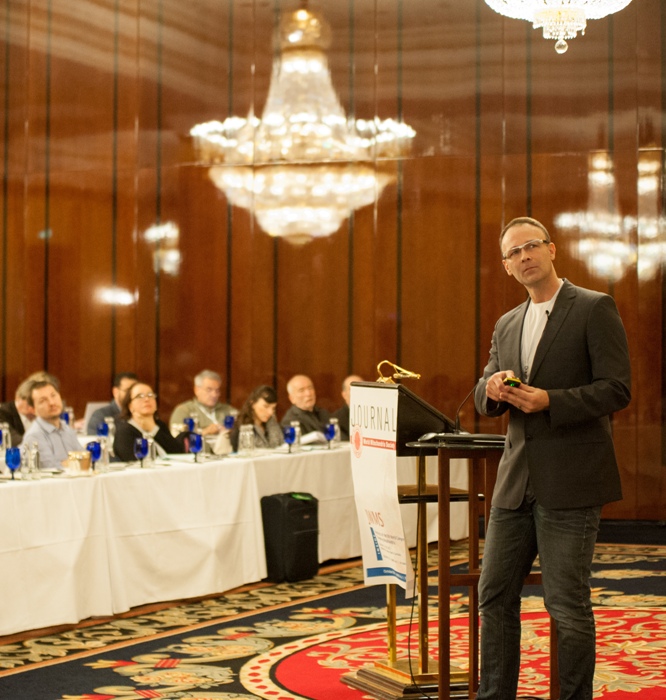 Pr Martin Bergö, from Sahlgrenska Cancer Center in Sweden gave a strategic talk about the impact of antioxidants supplementation on malignant melanoma progression during Targeting Mitochondria World Congress 2015 which was awarded by the scientific committee of the World Mitochondria Society.
Pr Martin Bergö, from Sahlgrenska Cancer Center in Sweden gave a strategic talk about the impact of antioxidants supplementation on malignant melanoma progression during Targeting Mitochondria World Congress 2015 which was awarded by the scientific committee of the World Mitochondria Society.
Pr Bergo's team has found that antioxidants can double the rate of melanoma metastasis in mice. The results reinforce previous findings that antioxidants hasten the progression of lung cancer. According to Professor Martin Bergö, people with cancer or an elevated risk of developing the disease should avoid nutritional supplements that contain antioxidants.
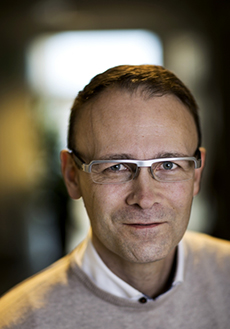
According Pr Bergo: "Cancer is a genetic disorder driven by oncogenic mutations, and DNA damage caused by reactive oxygen species (ROS) is part of the underlying mechanism. Since ROS levels are kept in check by antioxidants, a widely accepted dogma is that dietary supplements containing high concentrations of antioxidants protect against cancer. However, clinical trials have not supported this view, and some even showed that antioxidants increase cancer risk".
For more information about Targeting Mitochondria World Congress: www.targeting-mitochondria.com
For more information about Pr Bergo's study, please follow this link.
The Awards for Short Oral & Poster Presentations were discerned during Targeting Mitochondria World Congress
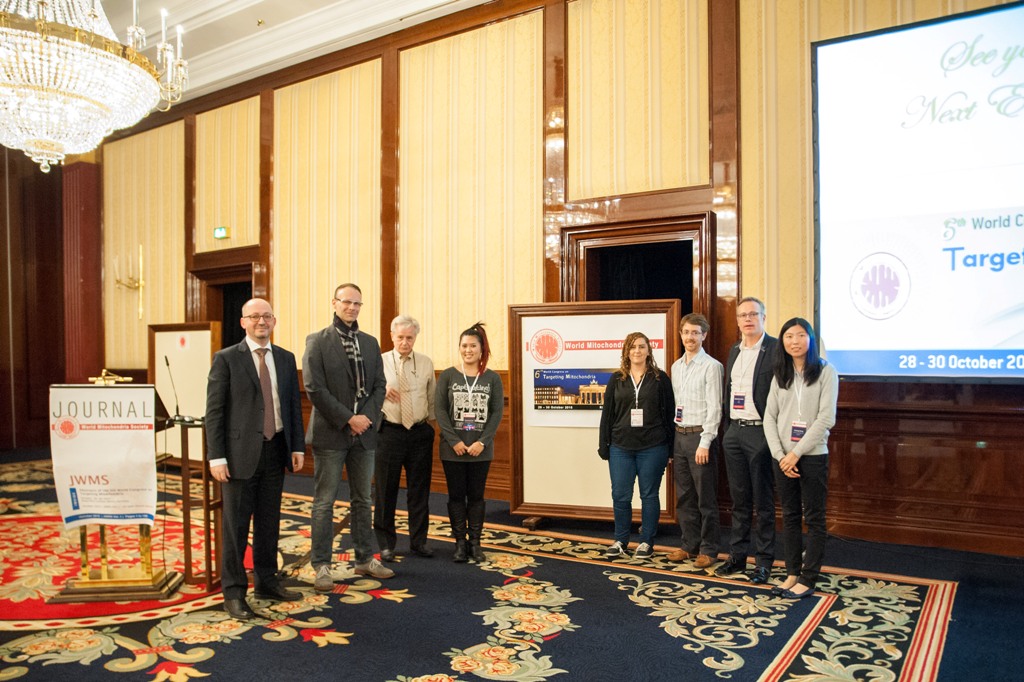
On behalf of the Scientific Committee, we congratulate all scientists for their short oral & poster presentations during Targeting Mitochondria 3-days congress.
The Scientific Committee discerned different awards:
The Scientific Contribution Award was discerned to Pr Martin Bergö from Sahlgrenska Cancer Center, Sweden for his researches about antioxidants in cancer.
More information by clicking here.
3 Awards for short oral presentation were discerned to:
- Dr Yuning Hong from University of Melbourne, Australia, for his presentation about Novel Fluorescent Probes for Visualizing Cell Structures and Function
- Dr Martin Picard from Columbia University, USA for his presentation about Inter-organelle communication via specialized mitochondrial synapse
- Dr Sébastien Bolze from Poxel, France for his strategic presentation about Imeglimin, a new mitochondria-targeted agent for type 2 diabetes treatment
2 awards were discerned for the best Poster Presentations:
- Mrs Ifat Cohen-Erez, from Ben Gurion University, Israel for her poster about Co-assemblies of the Anionic Polypeptide γ-PGA and Cationic β-sheet Peptides for Drug Delivery to Mitochondria
- Dr Genevieve Syn from Telethon Kids Institute, USA, for her poster presentation about Toxoplasma Gondii infection results in disruption of the host mitochondria.
If you would like to access to these abstracts and all the abstracts presented during the congress, you can order by abstracts book by clicking here.
For more information about Targeting Mitochondria World Congress: www.targeting-mitochondria.com
The 6th edition of WMS Targeting Mitochondria was a huge success
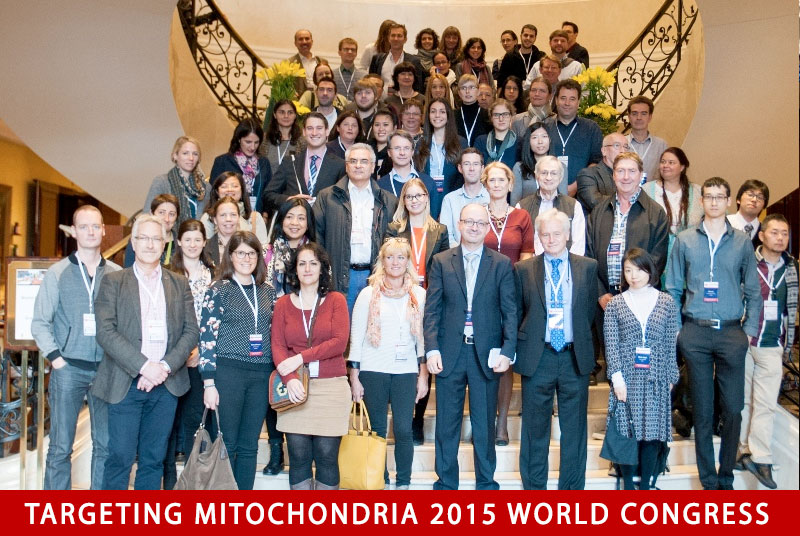
The 6th WMS World Congress on Targeting Mitochondria was held on October 28-30, 2015 at Hotel Ritz Carlton, Berlin. This sixth edition was a huge success gathering more than 430 attendees, coming from different flieds: academics, clinicians, industrials... and from 37 countries.
Marvin Edeas highlights the impact of glycation in health and medicine
 Dr Marvin Edeas, from Cochin Institute-INSERM U1016, CNRS UMR8104, Department of Cancer, Development and Reproduction / Inflammation, Oxidative stress and Cellular Proliferation Team, University Paris Descartes, wish to share with you many strategic questions about the important impact of glycation in health and diseases.
Dr Marvin Edeas, from Cochin Institute-INSERM U1016, CNRS UMR8104, Department of Cancer, Development and Reproduction / Inflammation, Oxidative stress and Cellular Proliferation Team, University Paris Descartes, wish to share with you many strategic questions about the important impact of glycation in health and diseases.
The field of interest of Dr Marvin Edeas is to study the relationship between mitochondria and microbiota (Pathog. Dis, 2016)
According to Dr Edeas: Actually, we investigate in clinical study many factors who can affect this intriguing relationship and may alter the Mitochondria-Microbiota Homeostasis such as oxidative stress, redox modulators and inflammation. We look to reinforce and protect mitochondria to provide the adequate energy and respect also the quality and diversity of gut microbiota.
The advanced glycation end products is one strategic target in our study. We try to clarify How they affect mitochondria and microbiota homeostasis ? There effects on oxidative stress, Redox status, genes expressions, inflammation, metabolism, ATP production and how they shape the gut and skin microbiota ?
During the 2 days of glycation 2016, we will highlight the following points:
- Can AGE inhibitors will be a potential strategy for the prevention of lifestyle-related diseases such as diabetic complications ?
- Can AGE inhibitors be used as a pharmaceutical drugs or dietary supplements?
- What is the importance and level of contribution of food-derived advanced glycation end products to the body pool of AGEs ?
- Can they increase oxidative stress, modulate redox signaling pathway, affect genes expression ?
- What is the impact on Mitochondria and cellular metabolism ?
- What is the impact on our gut microbiota ? Can AGEs affect the diversity and quality of our microbiota ?
- The inhibition of advanced glycation end-products by daily meals is myth or reality?
What is next ?
You can share with us your opinion, though and questions which I can diffuse to the scientific committee.
Marvin Edeas, Chairman of Glycation 2016 Conference
Microbiota-mitochondria inter-talk: consequence for microbiota-host interaction.
An excellent book to read by Marvin Edeas and Volkmar Weissig: Mitochondrial Medicine Volume 1 and 2
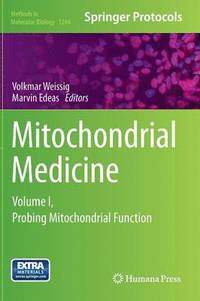 Springer published in 2015 two books edited by Volkmar Weissig and Marvin Edeas, as chairmen of the World Mitochondria Society:
Springer published in 2015 two books edited by Volkmar Weissig and Marvin Edeas, as chairmen of the World Mitochondria Society:
- Mitochondrial Medicine: Volume 1 - Probing Mitochondrial Function
- Mitochondrial Medicine: Volume 2 - Manipulating Mitochondrial Function
The first volume of Mitochondrial Medicine covers an interdisciplinary and rapidly growing area of biomedical research comprising genetic, biochemical, pathological, and clinical studies aimed at the diagnosis and therapy of human diseases which are either caused by or associated with mitochondrial dysfunction. It dedicates itself to showcasing the tremendous efforts and the progress that has been made over the last decades in developing techniques and protocols for probing, imaging, and manipulating mitochondrial functions.
Mitochondrial Medicine: Volume I, Probing Mitochondrial Function focuses on methods being used for the assessment of mitochondrial function under physiological conditions as well as in healthy isolated mitochondria. Written in the highly successful Methods in Molecular Biology series format, chapters include introductions to their respective topics, lists of the necessary materials and reagents, step-by-step, readily reproducible laboratory protocols, and tips on troubleshooting and avoiding known pitfalls. Comprehensive and practical, Mitochondrial Medicine provides an essential source of know-how and inspiration to all researchers who are fascinated by this tiny organelle that seems so clearly to control the life and death of a single cell and whole organisms alike.
Volkmar Weissg and Marvin Edeas highlited in these two volumes the strategic role of mitochondria in health and disease, but they also opened a new window to how to evaluate & to manipulate mitochondrial function.
38 chapters were published by Springer in this first volume.
For more information about Volume 1, please click here.
For more information about Volume 2, please click here.
Volkmar Weissig and Marvin Edeas updated and renewed an edition for 2017 and discussed the contributors and targets during the 7th World Congress on Targeting Mitochondria that was held in Berlin on October 24-26, 2016.
For more information about the annual Targeting Mitochondria meeting: www.targeting-mitochondria.com






